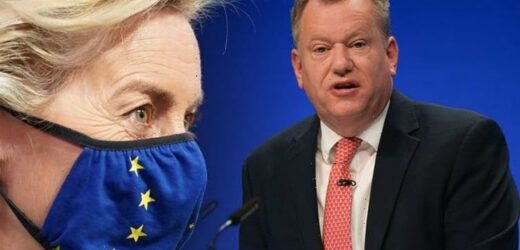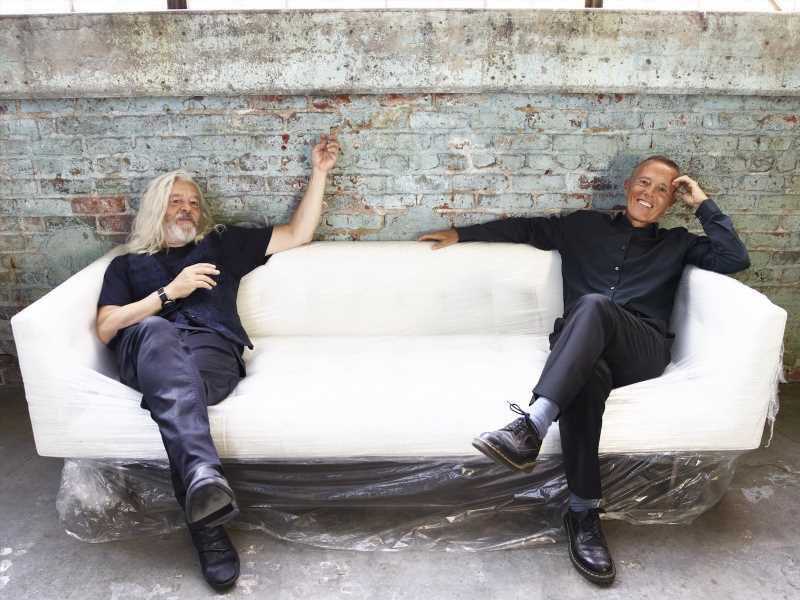Lord Frost gives update on UK’s participation in Horizon Europe
We use your sign-up to provide content in ways you’ve consented to and to improve our understanding of you. This may include adverts from us and 3rd parties based on our understanding. You can unsubscribe at any time. More info
A spokesperson for the Commission has told Express.co.uk that the UK’s association with the research and innovation initiative is waiting to be “finalised in due course”. Following the UK’s withdrawal from the European Union (EU), ministers agreed to work with the bloc on officially formalising the UK’s association with the programme. Doing so would allow UK-based scientists and innovators to tap into the programme’s resources and funding opportunities.
However, with issues surrounding the Northern Ireland Protocol hanging heavy in the air, there has been a great deal of uncertainty over this partnership.
Lord David Frost, the UK’s chief Brexit Minister, warned earlier this week that the Government was prepared to scrap funding for Horizon Europe and focus on local research and development instead.
He said: “We will of course put together a domestic research programme for our own sciences and universities in its place.”
The comments followed reports the Government was prepared to pull out the stops and trigger Article 16.


The Article 16 clause in the Northern Ireland Protocol allows either side of the conflict to roll out “safeguard” measures to protect national interests if the deal is seen to be causing more harm than good.
It is understood triggering Article 16 would allow either side to suspend parts of the NI Protocol.
The European Commission has now stressed that Horizon Europe is “by default open to the world” and acts as a tool for strengthening international cooperation.
A Commission spokesperson said: “Horizon Europe will encourage international participation in different ways such as: topics encouraging or requiring international cooperation, joint or coordinated calls, exceptional EU funding for participants from non-associated third countries, twinning activities with entities from non-associated non-EU countries, and topics contributing to the implementation of multilateral or bilateral agreements or initiatives.”
Brexit: Lord Frost hits out at EU over Northern Ireland Protocol
On Friday, it was announced Armenia has joined forces with the EU to join Horizon Europe as an associate.
Mariya Gabriel, Commissioner for Innovation, Research, Culture, Education and Youth, said: “I welcome Armenia to our Horizon Europe programme. Armenia has continuously increased its participation in the previous Horizon 2020 programme and has supported the acceleration of the reforms of the Armenian national research and innovation system in the past few years.
“Armenia will build on its past successes in Horizon Europe.”
All 27 member states of the EU are full-time members of the programme.
Nations outside of the EU have the opportunity to join the programme as associates.


These include Ukraine, Israel, Norway, Turkey and even the Faroe Islands.
The UK is presently awaiting for its associate status to be confirmed.
A Commission spokesperson said: “All aspects of UK association to EU programmes were agreed on 24 December 2020.
“The Trade and Cooperation Agreement between the European Union and the United Kingdom (TCA) agreed on that date provides the general framework for the association of the UK to EU programmes of its choice.
“The specific terms for the UK association to a number of programmes under the Multiannual Financial Framework 2021 to 2027, such as Horizon Europe, were politically agreed in two draft Protocols annexed to the TCA.”
The association will enter into force once these protocols are formally adopted.
The spokesperson added: “Meanwhile, transitional arrangements are in place to allow entities from candidate Associated Countries, including the UK, to apply in all Horizon Europe calls published since the launch of the Programme.
“They will be treated ‘as if’ they were entities of associated countries right until the signature of the grant agreement, by which time the respective association agreements would need to be in force.”
Source: Read Full Article


